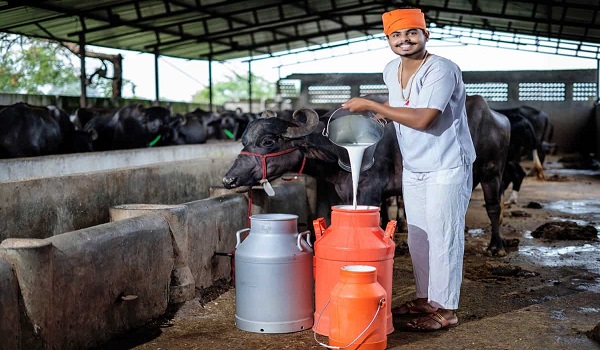The launch of a new platform by the Reserve Bank Innovation Hub is all set to use milk supply data to facilitate dairy farmer loans. Under this “frictionless credit” initiative, borrowers can access information about the milk they sold to organizations like Amul or use state-accessible land records to assess their repayment capacity. The platform, currently operational for farm and dairy loans, is planned to be extended to education loans (using Digi Locker), MSMEs (based on Udhyam registration, GST, and tax records), and even vehicle and personal loans, as successful tests have demonstrated loan sanctioning in less than 10 minutes.
Previously, the processing of farm loans used to take two to four weeks and cost about 6% of the loan’s total value. With the new platform, banks can efficiently tap into multiple data sources to make lending decisions. The entire procedure is app-based, and borrowers or bank employees can use hand-held devices and biometric authentication for identity verification and loan disbursement. For farm loans, digitized bank records, PANs, voter IDs, or other government-issued ID cards are used in the process.
Currently, five states are participating in the initiative, with more expected to join. The platform accesses data from Amul’s database of 30 million farmers for dairy loans, but it can also use satellite data or soil health reports to assess creditworthiness for loans related to crop cultivation, such as wheat, paddy, or maize. Loans are sanctioned based on a formula developed by Nabard, considering the landholding of the applicants.
The project faced challenges in getting banks to adapt their processes as their loan origination systems were not interconnected. Integration of data from land records, KYC, credit scores, and other details required cooperation with states, which was a challenging task according to RBI officials.


